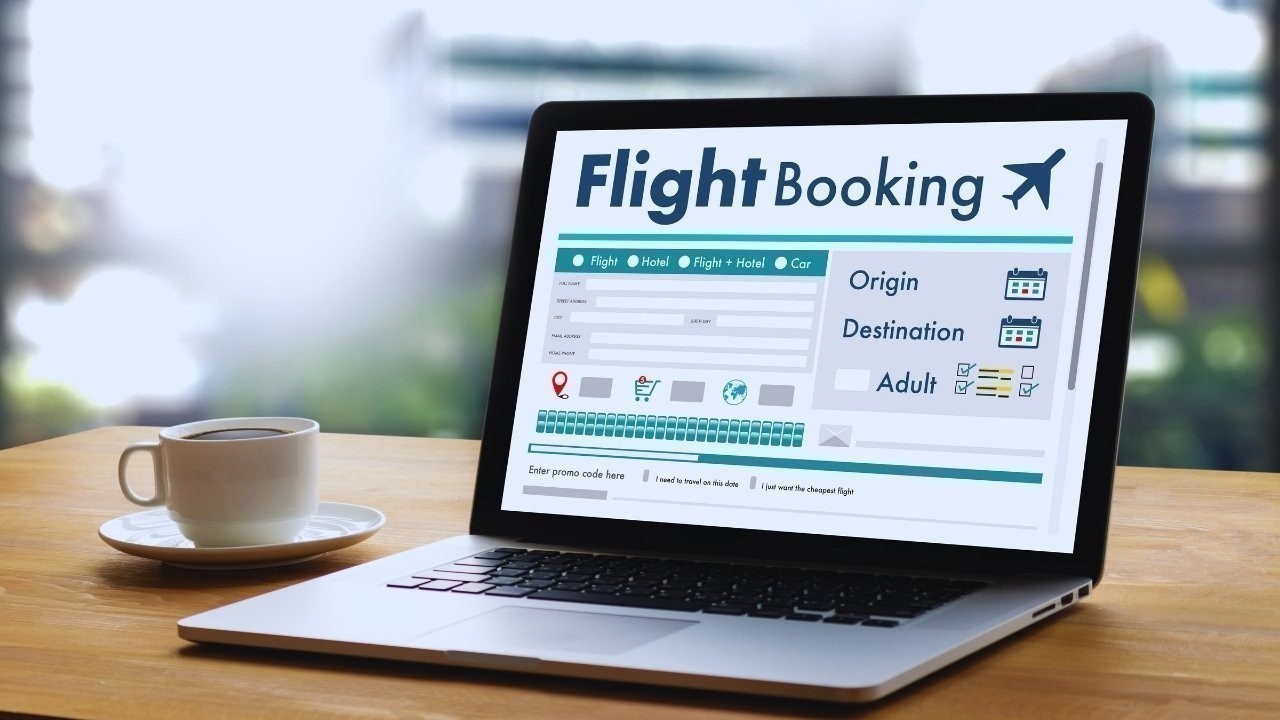
Post by : Anis Karim
Global travel has changed dramatically in 2025. Unforeseen weather events, airline staffing shortages, fluctuating fuel prices, and geopolitical tensions have all reshaped how people plan their trips. The once-reliable idea of booking early for the best rates is no longer a universal truth. Many savvy travelers are now turning to last-minute strategies to secure flexible, cost-effective options.
With airlines adopting real-time pricing models and hotels adjusting rates multiple times a day, timing your purchase has become a skill — almost a science. Whether you’re a frequent flyer managing international itineraries or a casual explorer planning spontaneous getaways, understanding how to book strategically during ongoing disruption can make all the difference between frustration and fulfillment.
Travel disruptions are no longer occasional hiccups — they are a defining feature of modern travel. Weather patterns are increasingly erratic, airports face chronic congestion, and airlines continue to recalibrate post-pandemic staffing issues. According to recent industry data, 32% of flights globally experienced delays or cancellations in the last quarter alone.
But disruption isn’t purely negative. It has forced innovation. Airlines have invested in more transparent rebooking systems, while travelers have become more adaptable, turning unpredictability into opportunity. The key lies in mastering the timing — knowing when to buy and when to wait.
The old travel adage said booking at the last minute would cost you a fortune. But in 2025, the landscape is far more nuanced. Dynamic pricing algorithms now adjust fares based on supply, demand, and predictive analytics — not just time.
During high-demand periods like holidays, early booking still wins. However, for off-peak routes, midweek departures, or flights with surplus seats, airlines often lower fares drastically in the final days before departure. The same applies to hotels and short-term rentals that prefer filling rooms at lower margins than leaving them vacant.
For flexible travelers, this is a golden window. Monitoring live price trends and setting alerts can reveal dramatic last-minute drops, sometimes up to 40% cheaper than advance bookings.
Airlines no longer rely on static pricing models. Instead, they employ advanced AI systems that consider dozens of variables — from global booking trends to regional weather forecasts. Prices are fluid, often changing every few hours.
Understanding this psychology can give you a tactical advantage:
Six to eight weeks out: Ideal for predictable travel windows, especially during holidays or conferences.
Ten to three days before departure: Sweet spot for off-peak deals, especially for business-class seats unsold by corporate travelers.
Under 48 hours: Risky but potentially rewarding; airlines release final discounts to fill seats, though options may be limited.
Timing your purchase based on the route, season, and day of the week can help you outsmart the system.
The modern traveler who thrives in disruption is flexible. Instead of locking in rigid itineraries months ahead, adaptable travelers benefit from dynamic schedules and broader destination choices.
Tools like flexible date searches, multi-city bookings, and open-jaw tickets allow travelers to adjust plans quickly. Airlines and booking platforms now reward flexibility with reduced fares, travel credits, or free date changes. The mindset has shifted from “confirming early” to “moving strategically.”
A flexible traveler sees disruption not as an obstacle but as an invitation to improvise — often discovering cheaper and more authentic experiences as a result.
Technology has become the modern traveler’s secret weapon. Real-time tracking apps, predictive analytics, and smart alerts make it easier than ever to make informed booking decisions.
Some of the most effective tools include:
Price prediction apps: Use AI to forecast fare fluctuations up to 90 days ahead.
Meta-search platforms: Aggregate rates across dozens of booking sites, giving a clear view of the price spectrum.
Flash deal alerts: Notify you instantly when prices drop below average for your chosen route.
Airline loyalty apps: Offer early access to flash sales, compensations, or upgrades during disruptions.
Using these tools strategically helps travelers navigate uncertainty with precision, transforming chaos into opportunity.
After the pandemic’s first “revenge travel” boom, 2025 has seen a second wave — a more mature version of the same phenomenon. Travelers have learned to mix spontaneity with preparedness. Many now prefer shorter, more frequent trips that can be adjusted based on global conditions rather than long, inflexible vacations.
This evolution has boosted last-minute booking demand. Airlines are responding by offering “rolling discounts,” hotels are releasing same-week inventory at slashed prices, and even cruise lines are offering “set sail soon” packages. The idea is simple — if you’re ready to move fast, the travel world will reward you.
The travel industry’s volatility requires real-time responsiveness. Being too cautious often means missing opportunities. Successful travelers now adopt a monitor and strike approach — watching prices for fluctuations and acting the moment value appears.
Platforms offering 24-hour cancellation policies or “book now, pay later” features make it easier to lock in deals without commitment. This hybrid model of booking flexibility offers both security and spontaneity, which is crucial during uncertain times.
Hotels and vacation rentals are equally affected by travel instability. Empty rooms hurt revenue more than discounted ones. As a result, accommodation providers are becoming far more aggressive with last-minute deals.
Some strategies that work best in 2025 include:
Book same-day after 4 PM: Hotels release unsold rooms at deep discounts.
Use mobile-exclusive deals: Many booking apps offer 10–25% reductions for mobile users.
Join hotel loyalty programs: Members often get priority rebooking and “hidden” rates unavailable to the public.
Mix premium with budget: Stay one night in a luxury property, then switch to a boutique hotel to balance costs.
Adapting to this “patchwork” travel model allows travelers to stay comfortably while maintaining control over spending.
Amid flight cancellations, weather disruptions, and shifting border rules, travel insurance has become non-negotiable. Modern policies now cover more than medical emergencies — they also include flight delays, cancellations, and even lost time due to strikes or system outages.
Savvy travelers choose policies that include:
“Cancel for any reason” clauses
Automatic rebooking support
Coverage for missed connections
Compensation for travel disruptions
Having the right insurance doesn’t just protect your money — it buys peace of mind when plans change without warning.
Frequent travelers are rediscovering the value of loyalty. Airlines, hotel chains, and travel platforms have reinvented their membership ecosystems to include flexible rewards, fee waivers, and upgrade credits.
Today’s points aren’t just about flights — they’re currency for resilience. Members get faster customer support, priority rebooking, and access to disruption alerts. When the unexpected happens, loyalty pays back in convenience and comfort.
The new generation of travelers is both price-conscious and planet-conscious. Environmental disruptions — from climate-induced flight delays to carbon taxes — have also reshaped how people plan.
Eco-aware travelers now seek:
Airlines using sustainable fuel blends
Hotels with verifiable green certifications
Routes with smaller carbon footprints
Interestingly, these sustainable options often align with smarter booking times — early morning or midweek flights tend to emit less carbon due to smoother operations and reduced congestion.
Booking last minute always involves some level of uncertainty. The best approach lies in balancing risk with informed strategy. If you’re traveling to attend an event or need specific accommodations, early booking with flexible terms is still wise. However, for leisure trips, being open to alternate dates or destinations can unlock incredible deals.
Risk tolerance varies — some travelers enjoy the thrill of unpredictability, while others prefer guaranteed comfort. The art lies in identifying your comfort zone and planning accordingly.
Travel analysts note that major disruptions — like weather alerts or air traffic strikes — often create temporary price dips just before markets stabilize. Frequent flyers use these windows to secure premium tickets at economy rates.
Similarly, business travelers stranded by cancellations are shifting toward hybrid options: booking short-haul flights last minute while securing accommodations weeks in advance. This dual approach minimizes uncertainty while leveraging flexibility.
Last-minute travel in 2025 isn’t about luck — it’s about understanding systems, trends, and timing. By using technology, flexibility, and data-driven decision-making, travelers can navigate ongoing disruptions confidently and even turn them to their advantage.
The travel world rewards adaptability. Whether you’re exploring nearby getaways or planning international journeys, success lies in staying informed, reacting fast, and embracing the unexpected. In a world where change is constant, the smartest travelers aren’t those who plan the most — they’re the ones who plan best.
This article is intended for informational purposes only. Travel prices, policies, and disruptions vary widely by region and provider. Readers should verify details with airlines, travel agents, or official tourism sources before making financial commitments.

Mastiii 4 trailer out Riteish, Vivek, Aftab reunite for comic chaos
Riteish Deshmukh, Vivek Oberoi, and Aftab Shivdasani bring back their signature madness in Mastiii 4

Australian First Nations Fashion Takes Center Stage in India
Australian First Nations fashion merged art and culture on an Indian runway as Kirrikin marked its 1

Bhumi Pednekar stuns in ₹6.87 lakh wine Kanjeevaram saree at wedding
Bhumi Pednekar turned heads in a ₹6.87 lakh wine Kanjeevaram saree at Vedant Birla and Tejal Kulkarn

Dubai Holding & Palantir Launch Aither, UAE’s AI Powerhouse
Dubai Holding and Palantir form Aither, UAE’s first AI JV, to drive enterprise AI adoption and boost

South Korea Sees Fastest Inflation Rise Since July 2024
South Korea’s consumer prices rose 2.4% in October, marking the fastest inflation growth in over a y

Sharjah to Host Landmark Arab-German Science & Humanities Meet
University of Sharjah readies Arab-German Conference, uniting 100+ researchers for science, innovati

Taylor Swift & Gigi Hadid Dazzle in Coordinated NYC Dinner Outfits
Taylor Swift and Gigi Hadid turned heads with matching fashion in NYC. The longtime friends dined at

UAE Life High Stress 3 Simple Ways Expats Can Manage Pressure
Expats in the UAE face daily pressure and burnout Learn 3 simple effective ways to manage stress fin

Smart Meal Prep in Dubai Save Money Stay Healthy
Plan smart eat fresh Discover how meal prepping in Dubai helps you save money eat healthy and enjoy

The Ultimate Guide to Dieting in Dubai Keto vs Vegan vs Mediterranean
Discover Dubai’s top diet trends Keto Vegan and Mediterranean Find which plan fits your lifestyle f

Stay Fit in Dubai 7 Fun Outdoor Workouts Without a Gym
Explore 7 fun ways to stay fit in Dubai from beach runs to desert hikes and skyline yoga No gym nee

Beyond Biryani: Mastering Portion Control in Dubai’s Melting Pot of Cuisines
Discover how to enjoy Dubai’s diverse cuisines wisely Learn simple portion control tips to stay heal

Fabien Marchand — The Infinite Brushstroke of Freedom
French artist Fabien Marchand explores freedom, color, and emotion through his evolving art — bridgi

Dubai’s Healthy Food Revolution 5 Global Wellness Trends Transforming the City
Discover how Dubai is embracing a global wellness wave with plant based diets organic food and smart

Start Your Day with Chia Seeds for Stronger Healthier Hair Naturally
Discover how morning chia seeds boost hair growth add shine and strengthen roots naturally with easy